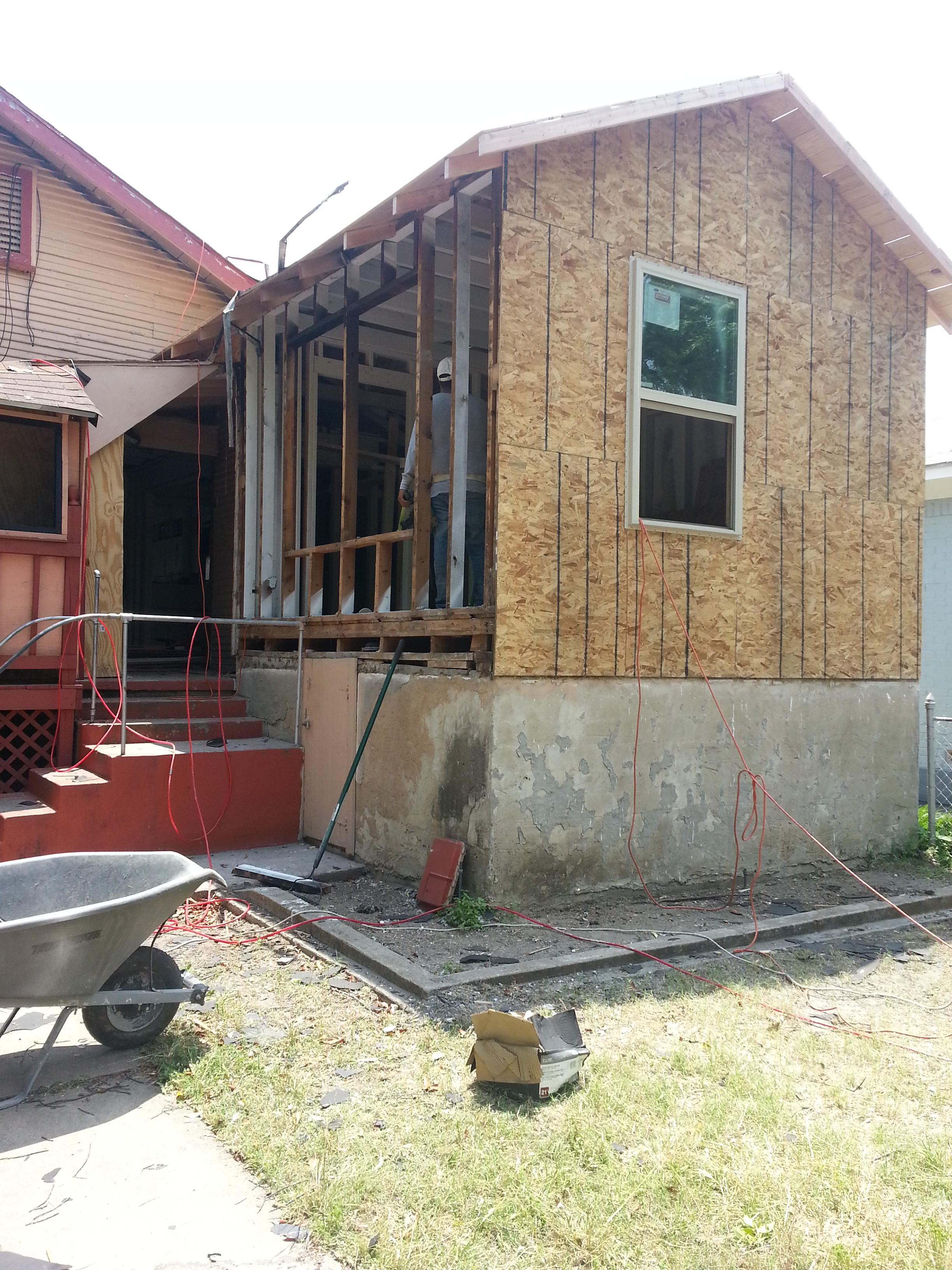Ten Lessons We Learned From a House Fire
On 12 April 2013, I was driving to a restaurant with my brother and his wife for breakfast. As we drove, I received a call from my youngest son, who was waiting to go to the Navy to begin his enlistment. His words chilled me, “The house is on fire.” I asked him if he was kidding, as he was not averse to joking at times. “No, the house is on fire, and I have called the fire department.” I told my brother, who was driving, and we turned back toward my home. I called my wife and told her what my son had told me as we drove. We had reached Hampton Blvd and Westmoreland Rd., and we u-turned. As we headed north on Westmoreland (it is a higher point than other parts of Oak Cliff, the southwest section of Dallas, Texas), I could see a trail of thick smoke in the distance. My heart sank as I realized that the column of smoke as in the area in which we live. The closer we got, the thinner the smoke also got, probably due to the fact the fire department had arrived and were extinguishing the flames.
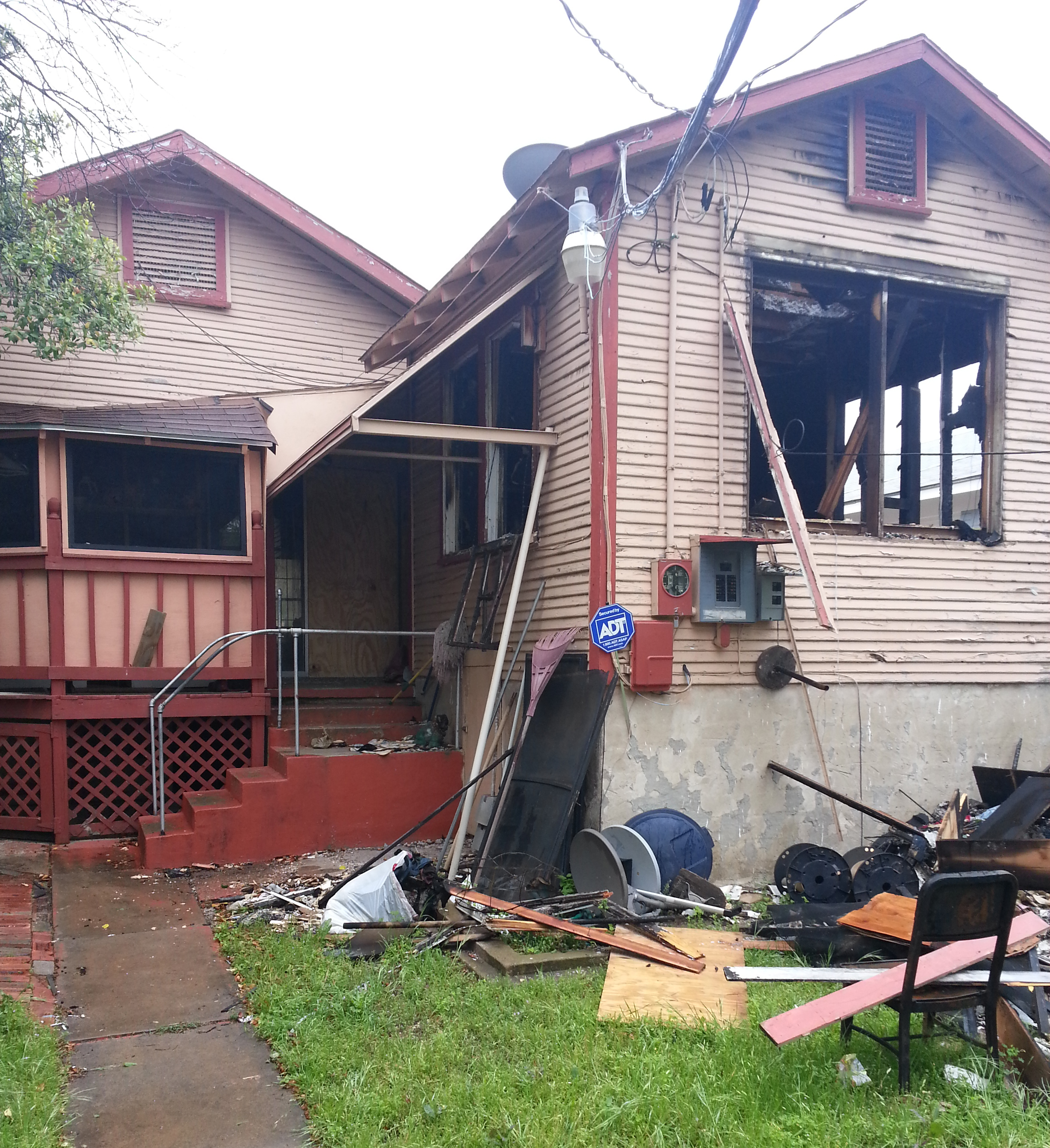 As we approached my street, I could see fire trucks blocking the direction we were heading. We went around the block and headed for my home. When my house came into view, I saw firefighters entering and exiting my home. The smoke had mostly ended, and the first responders continued their work. I approached the house and was ushered away by a fireman, who asked me to stand across the street. I went across and stood near the curb staring at the home. I am sure those around me, and there were quite a bunch of people already standing around watching the activity, were able to see that I was in shock. I just stood there staring at the firefighters entering and exiting, until one of them walked over to me, I think it was the same one who ran me off, and said, “It’s all yours.” They picked up all their gear and drove off.
As we approached my street, I could see fire trucks blocking the direction we were heading. We went around the block and headed for my home. When my house came into view, I saw firefighters entering and exiting my home. The smoke had mostly ended, and the first responders continued their work. I approached the house and was ushered away by a fireman, who asked me to stand across the street. I went across and stood near the curb staring at the home. I am sure those around me, and there were quite a bunch of people already standing around watching the activity, were able to see that I was in shock. I just stood there staring at the firefighters entering and exiting, until one of them walked over to me, I think it was the same one who ran me off, and said, “It’s all yours.” They picked up all their gear and drove off.
My wife arrived about that time, and I waked over to her. She looked toward the house and then to me, and then back at the home. Tears started welling up in her eyes. We walked to the house and stood just inside the front door and took in the sight of a blackened home. The smoke smell was strong, and everything we saw had been touched by the smoke. We saw destruction. We both started crying, and hugged each other as we stood there.
LESSONS WE LEARNED
Lesson One
There is life after a fire. Yes, as you have probably heard before, you will lose some things which will never be replaced or regained. But, new things follow a fire. What those new things are will depend on your stinginess.
Lesson Two
If your home insurance policy is the lowest you are willing to pay, you will suffer an additional trauma when they explain to you what is covered and how much they will pay. A couple of years before our fire, my wife and an agent from our insurance (Farmer’s), met and negotiated our insurance policy coverage level. The agent suggested we upgrade to a higher level which would cover more in case of an emergency. My wife, whom I believe one of the wisest persons in my life, agreed and we begin to pay the higher rates. Why is this important? Well, in the end, we found out that the cost to repair our home ran up to and almost $90,000 and the cost to replace many of our lost contents was around $64,000. Had we stayed at the lower level we had before, we would have had to come up with many thousands out of pocket to repair and replace. If we had not moved up to the next level, we would have suffered not one, but two, traumas, the emotional consequence of a fire and the pain of paying all that money we did not have. All the money in the world cannot help get back what we lost due to the fire, but being able to buy new furniture, appliances, clothes, and so forth, eases the pain of the loos somewhat. A good decision regarding home insurance will make a difference when you have some emergency.
Lesson Three
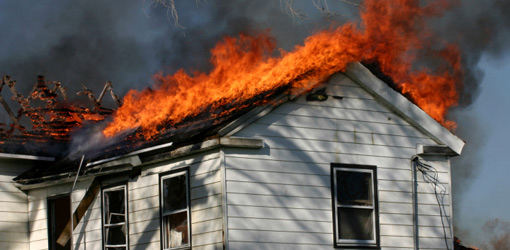 You will have an emergency. I promise you, no matter who you are and how well you prepare, you will have an emergency. But, how well you prepare can make going through a serious emergency, such as a fire, much less painful and traumatic. The biggest lie you will ever tell yourself about a traumatic emergency is that though it might happen, this does not mean it will happen soon. We had no idea we were going to have a house fire. There were no clues or hints or warnings about an imminent fire. We were caught completely off guard. We had no reason to expect a fire. But, due to my wife’s insight and wisdom we were prepared financially, if not emotionally, prepared to deal with the event. We have learned from this event to look at other areas in our life. We pay attention to things and circumstances a bit closer than before. We may not catch every single situation which could happen, but it will not be because we stuck our heads in the sand, as it were, and pretend that nothing is going to happen.
You will have an emergency. I promise you, no matter who you are and how well you prepare, you will have an emergency. But, how well you prepare can make going through a serious emergency, such as a fire, much less painful and traumatic. The biggest lie you will ever tell yourself about a traumatic emergency is that though it might happen, this does not mean it will happen soon. We had no idea we were going to have a house fire. There were no clues or hints or warnings about an imminent fire. We were caught completely off guard. We had no reason to expect a fire. But, due to my wife’s insight and wisdom we were prepared financially, if not emotionally, prepared to deal with the event. We have learned from this event to look at other areas in our life. We pay attention to things and circumstances a bit closer than before. We may not catch every single situation which could happen, but it will not be because we stuck our heads in the sand, as it were, and pretend that nothing is going to happen.
Lesson Four
Pick the company who will work at repairing your home carefully, and do not sign anything while you are still feeling numb from the fire. Shock is an interesting thing. You can be suffering shock and think you are okay. The main problem with shock is it causes you to have tunnel vision. This means you focus on the event, situation, circumstance, or so forth, after a traumatic event. You will not be in full control of all of your senses, no matter what you tell yourself. After a fire in one’s home, your shock may last for days or weeks. Find someone you trust to be at your side while you ask questions, so they can help you think of questions you may not think about on your own. When the repair company you approach, or who approaches you (they will come out of the woodwork all of a sudden, really!), hands you their contract, ask to take the contract home and review it before signing. If they tell you that they need to get it signed quickly so they can get started, then walk away. Any company which is fair and honest will have no problem waiting a day or two for you to be comfortable with what you will be signing.
Lesson Five
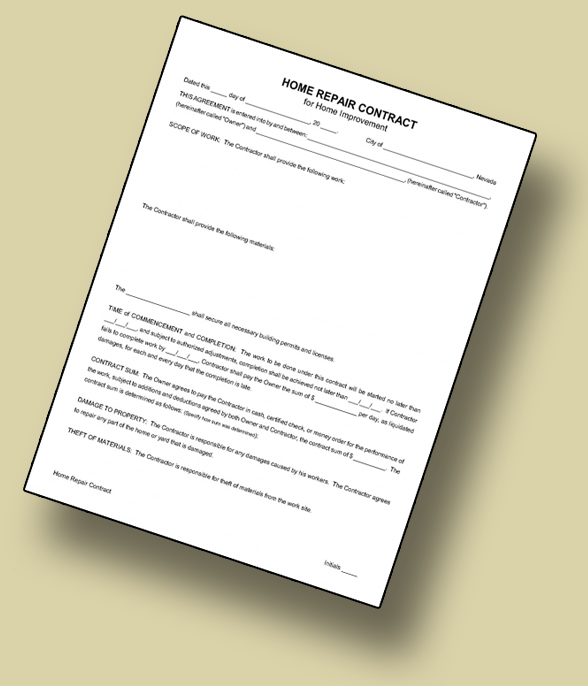 Understand the home repair contract. Most of the contract from home repair companies include clauses which state they will be receiving to complete pay out of the insurance policy, and not you. This is good and bad. The good part is if you have enough or more coverage to cover whatever the repair company estimates will be the costs for the repairs to your home, then there should be no additional expenses out of pocket for you, in regard to the repair of the house. For example, if the repairs will cost $90,000, and your insurance covers up to $100,000, the company will keep the extra $10,000, but your home will be completely repaired. The bad is that you will not get the extra $10,000. MOST IMPORTANT – make sure to have the company representative write onto the contract that they will repair the home solely for the amount which your insurance will pay out to you. This means they will expect to receive from you all payments from the insurance company for home repairs. In our case, for example, the company representative who came to see me for the last payment mentioned that there were still $2000 due beyond what the insurance company paid out. I showed the representative the initial contract with the hand written statement that they would do the repairs solely for the amount to be paid out by the insurance, and he went away. I could tell the last representative was unhappy, but that was something they would have to work out among themselves. I complied with the contract.
Understand the home repair contract. Most of the contract from home repair companies include clauses which state they will be receiving to complete pay out of the insurance policy, and not you. This is good and bad. The good part is if you have enough or more coverage to cover whatever the repair company estimates will be the costs for the repairs to your home, then there should be no additional expenses out of pocket for you, in regard to the repair of the house. For example, if the repairs will cost $90,000, and your insurance covers up to $100,000, the company will keep the extra $10,000, but your home will be completely repaired. The bad is that you will not get the extra $10,000. MOST IMPORTANT – make sure to have the company representative write onto the contract that they will repair the home solely for the amount which your insurance will pay out to you. This means they will expect to receive from you all payments from the insurance company for home repairs. In our case, for example, the company representative who came to see me for the last payment mentioned that there were still $2000 due beyond what the insurance company paid out. I showed the representative the initial contract with the hand written statement that they would do the repairs solely for the amount to be paid out by the insurance, and he went away. I could tell the last representative was unhappy, but that was something they would have to work out among themselves. I complied with the contract.
Lesson Six
Just because you singed a contract to allow a company to repair your home, this does not take away your ability to insist on specific repairs or modifications. Keep this in mind, the insurance company will be paying the repair money to you, not the repair company. It will then be necessary for you to pay them. Open a bank account specifically for this circumstance, deposit all monies received from the insurance company into that account, and use the account as a means of adequately handling your expenses. Even though you signed a contract, you are the one who has to pay the company for the repairs. Whether they like it or not, break the payments into three separate parts. They will need a specific amount to get started hiring the people who will actually do the repair work, like clean up people, carpenters, roofers, etc. Certain city ordinances or laws may require the repairs be done in some specific manner. Be sure to ask the company to explain these to you, and ask them to give you the information so you can double-check what they have told you. You know, because people never lie, right? With all of this in mind, look for any workable and not large changes you may want to make. A good company will have no problem with minor changes or modifications, as long as they do not require approval by city inspectors. I butted heads with the repair company representatives on one change I insisted upon, they were happy to make the change once I reminded them that while I had to pay them for the repairs, nothing required me to pay them when they believed they were ready to be paid. I could stall the payment. They did not want that, so they “smiled” and agreed with the change.
Right after the fire, but before the repair company swoops in to begin their work, you will have a few days to begin the work of searching thorough your belongings. There may be some property which can be salvaged. If you can do so, great! But keep this in mind, the smoke smell will NOT go away. You will be encouraged by people to either try certain products, or businesses which supposedly clean items for you. Please believe me when I say that the smoke smell does NOT go away. When it comes to clothes or furniture which got smoke damage, but did not get burned, make up your mind to let go of those things emotionally. If you have an appropriate level of insurance, your company will likely pay out to you an amount which will more than cover for the purchase of new items. By the way, do NOT pay for some company to come and clean out your home before the repairs begin, the repair company you contracted with is also responsible for cleaning up before beginning their work. Don’t waste money. Give each possible instance of expenditure a double-take before handing out cash. Lots of people will want your money, because they know, or at least believe, that you will be getting money from an insurance company.
Lesson Eight
Depending on your insurance policy level, you will likely be paid out some money for your home contents which were destroyed or damaged in the fire. This amount can be quite high, if you were not stingy in which level policy you got. Keep in mind that the repair company knows this. They will encourage you to do some add-on work, such as additional insulation work, and so on. They will not know what amount you got, and this is my recommendation: DO NOT TELL ANYONE HOW MUCH YOU RECEIVED! When I say “anyone,” I mean anyone. Friends, relatives, in-laws, and outlaws will all want some of that cool cash. We did not tell anyone what the amount was until it was spent. I have some suggestions:
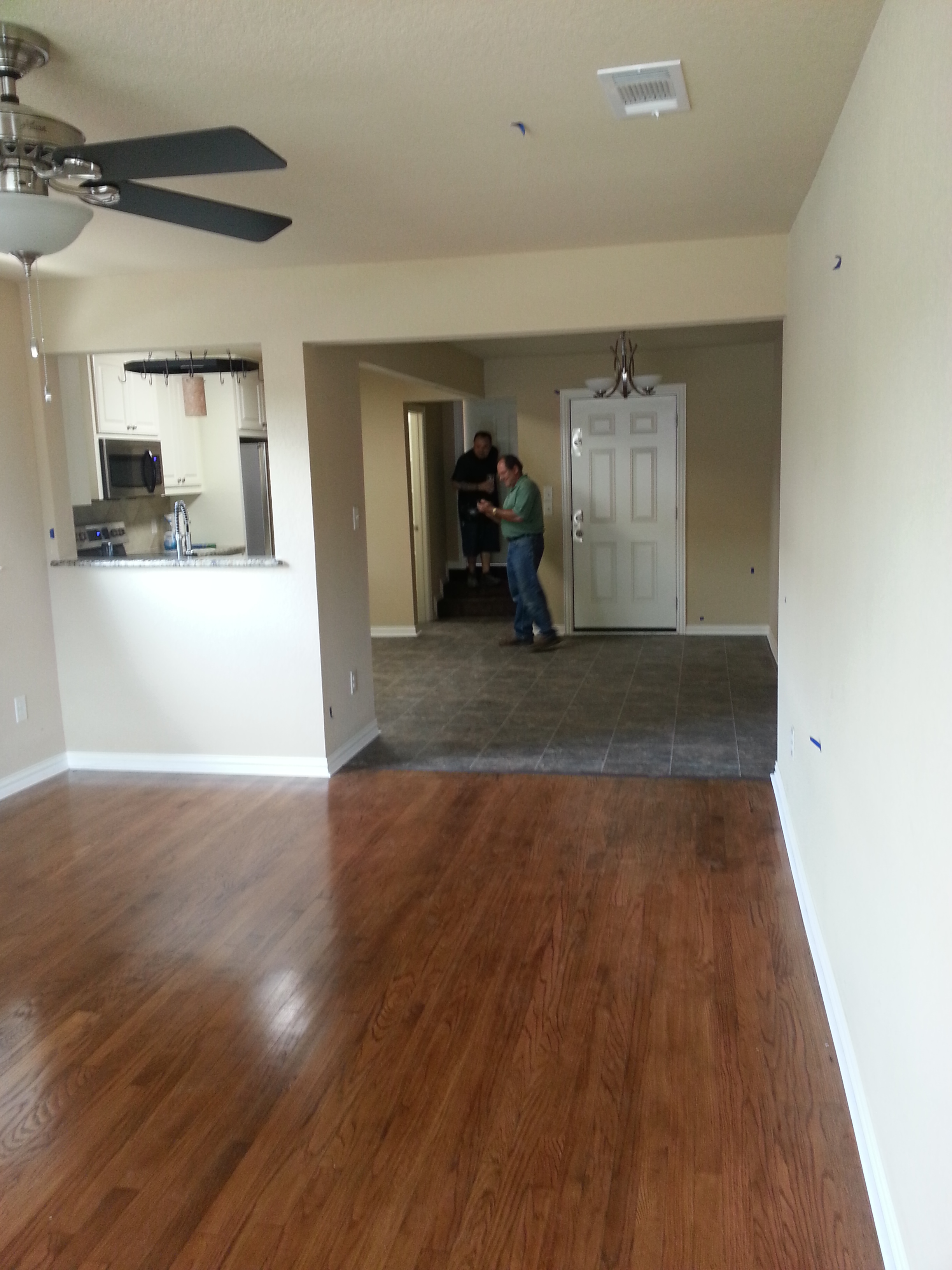 When your home is completely repaired, your house will be empty. The repair company will have to replace some appliances, but not most of them. Find out what they will be replacing, and then start a list of needed purchases. An example may be refrigerator, sofas, beds, TV’s, clothes, shoes, personal products, and so on. Make the list carefully, because, believe it or not, you will spend the money quicker than you might initially think. We spent the almost $64,000 in just a few months. Sure, we spent it solely on the contents and clothing for ourselves, but it went quick. I was so amazed and learned that one has to be careful with such large amounts.
When your home is completely repaired, your house will be empty. The repair company will have to replace some appliances, but not most of them. Find out what they will be replacing, and then start a list of needed purchases. An example may be refrigerator, sofas, beds, TV’s, clothes, shoes, personal products, and so on. Make the list carefully, because, believe it or not, you will spend the money quicker than you might initially think. We spent the almost $64,000 in just a few months. Sure, we spent it solely on the contents and clothing for ourselves, but it went quick. I was so amazed and learned that one has to be careful with such large amounts.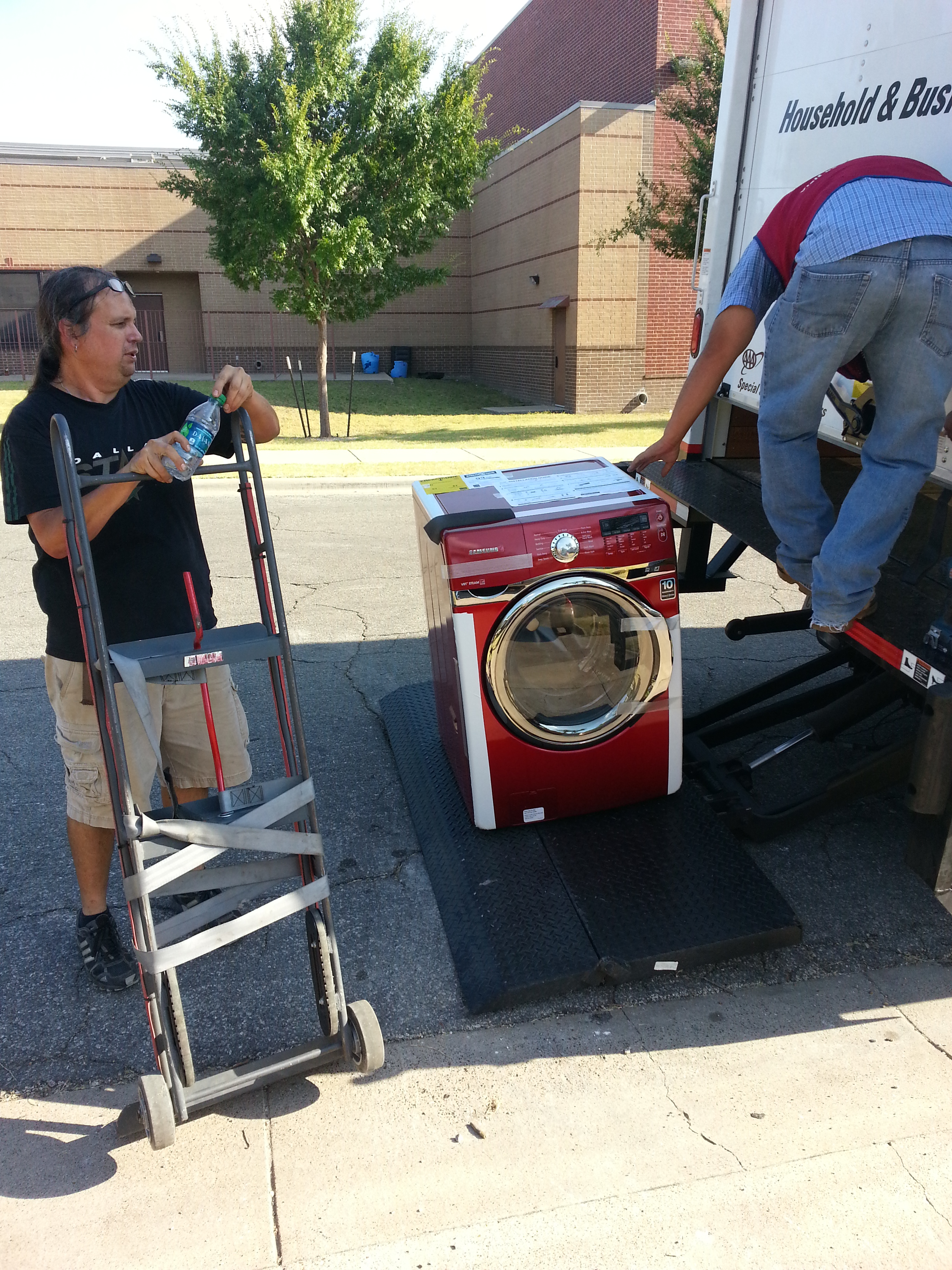 Be nice to yourself. Yes, be careful in how you spend the money, but you will probably not have another opportunity like this (and hopefully never another fire). I bought new kitchen equipment and utensils, but not just some new ones, I took advantage of the situation and bought high quality ones. The decision turned out to have been a good one, due to the fact that the things I bought are still working great. A couple of our older TV’s were damaged by smoke, and we were “forced” to buy newer and better televisions which were also larger. Oh yea, babe! My wife and I have always bough clothes from second hand stores, we have, since getting married, found this acceptable. This time around, we bought new clothes and shoes. None of this takes away the pain from the fire, but it sure makes it easier to deal with, and it helped with the emotional healing.
Be nice to yourself. Yes, be careful in how you spend the money, but you will probably not have another opportunity like this (and hopefully never another fire). I bought new kitchen equipment and utensils, but not just some new ones, I took advantage of the situation and bought high quality ones. The decision turned out to have been a good one, due to the fact that the things I bought are still working great. A couple of our older TV’s were damaged by smoke, and we were “forced” to buy newer and better televisions which were also larger. Oh yea, babe! My wife and I have always bough clothes from second hand stores, we have, since getting married, found this acceptable. This time around, we bought new clothes and shoes. None of this takes away the pain from the fire, but it sure makes it easier to deal with, and it helped with the emotional healing.- Don’t forget other needs around the property. My wife and I had been contemplating some upgrades to our property. We needed to upgrade the electrical wiring, replace the roofing, paint the house, and more. When we sat down and added these upgrades we found we would need in the range of about $30,000 to $50,000 to cover everything we wanted to improve.
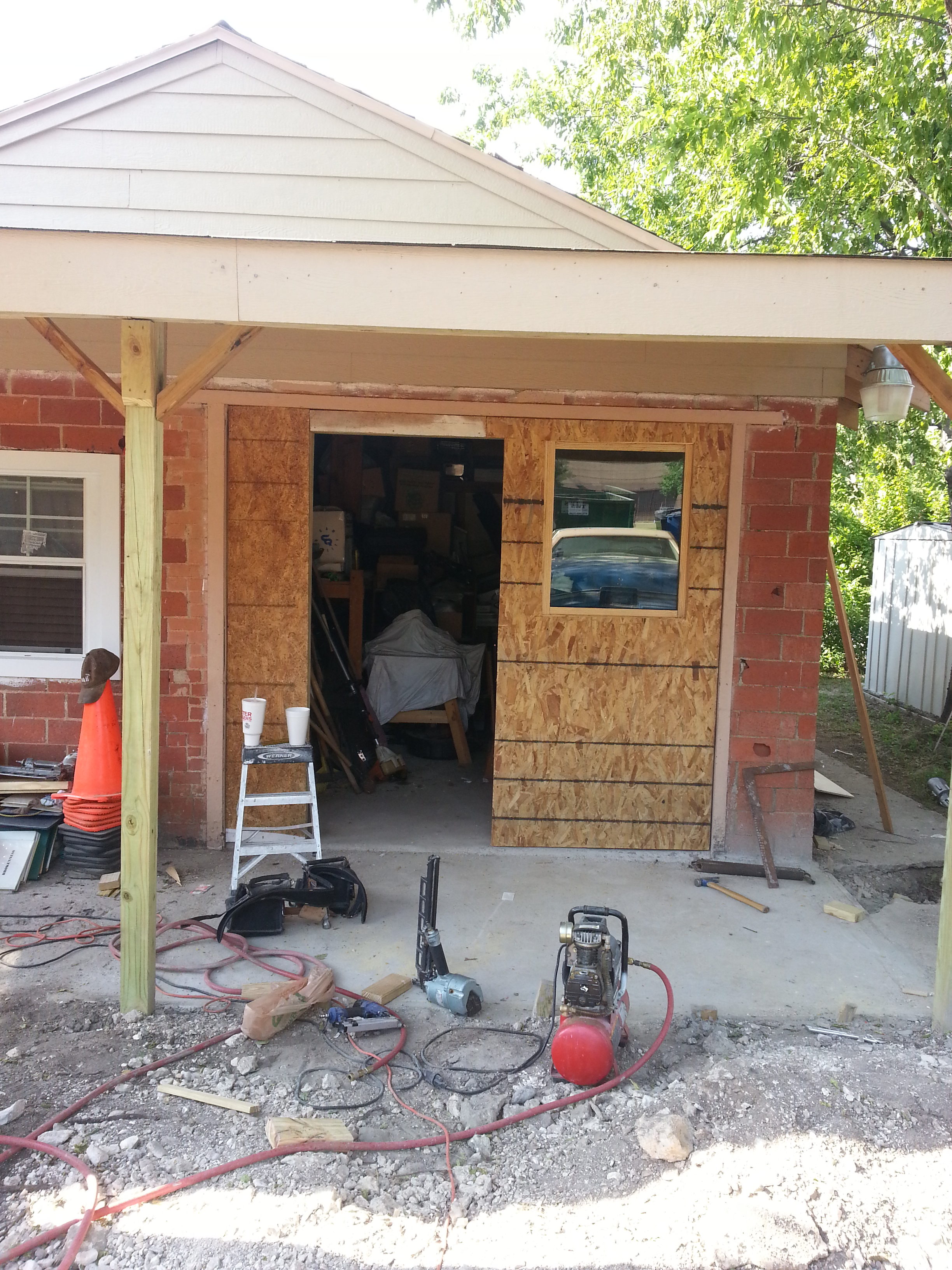 Though we hated that we had a fire, the repairs made included some of those items on our list. We then had the opportunity to use some content money for other projects. One of the projects, which was included in the amount, was the garage. We needed to remove the garage door and replace it with a wall and regular entry door. This would allow us to use that space for a different function. In our case we turned it into a work shop for me to do home repairs and projects. We were also able to use some of the content money to add porches to the front of the garage, as well as the counseling office (which we have on property). One last item we spent some of our content money to do is add an additional (small) room to our home. We now have two restrooms, instead of just one.
Though we hated that we had a fire, the repairs made included some of those items on our list. We then had the opportunity to use some content money for other projects. One of the projects, which was included in the amount, was the garage. We needed to remove the garage door and replace it with a wall and regular entry door. This would allow us to use that space for a different function. In our case we turned it into a work shop for me to do home repairs and projects. We were also able to use some of the content money to add porches to the front of the garage, as well as the counseling office (which we have on property). One last item we spent some of our content money to do is add an additional (small) room to our home. We now have two restrooms, instead of just one.  Save any remaining money. You may not end up with any extra money when you are done making new purchases, but if you do, put it in your savings. Get ready for the next emergency you will My wife and I save money every chance we get. We have good insurance, savings, and are careful with our spending, but expenditures will happen, and sometimes they will be unexpected. At the time of this writing, I am about to go through a procedure to replace one or both of my knees. Even with insurance coverage, we will have copays and possible equipment purchases to make. Those costs will come out of our pockets. Thank God we save money.
Save any remaining money. You may not end up with any extra money when you are done making new purchases, but if you do, put it in your savings. Get ready for the next emergency you will My wife and I save money every chance we get. We have good insurance, savings, and are careful with our spending, but expenditures will happen, and sometimes they will be unexpected. At the time of this writing, I am about to go through a procedure to replace one or both of my knees. Even with insurance coverage, we will have copays and possible equipment purchases to make. Those costs will come out of our pockets. Thank God we save money.
Lesson Nine
It okay to cry and let out your emotions. In fact, it is possibly the best thing you can do. You may even consider counseling. If you do consider counseling, come and see me. I charge $20 per session and I have experienced trauma in my life as well. I may not know how you feel, but I can sure guess at it. In any case, make time for each other. The loss of property and personal items will have different impacts on different persons in your family. You may convince yourself that you are fine, but your kids may be hiding fear and anger at the loss of their stuff. A fire is similar to being burglarized. Something came along and stole your stuff, in this case through a fire. Your home has been invaded. This can cause strong feelings of fear and doubt in some family members. Make an extra effort to pay attention to each other, cry together, support each other, and encourage each other. If anyone is showing signs as though they don’t care, or that it was nothing big, this is an indication that they may be suffering with shock more than others. Pay careful attention to these individuals, and make them get involved in whatever steps you take to heal as a family.
Lesson Ten
Keep trusting in God. One night my wife and I were watching an episode of “Extreme Makeover: Home Edition.” I watched as they built a new home for a fireman and his family. I will admit a small bit of jealousy. I thought about the almost 30 years of ministering to people through counseling. With the grace of God, I have helped many persons and couples deal with difficult times in their lives. I have seen the Lord bring change to many persons, and I told myself that I also deserved a home “makeover.” I mentioned this to my wife that night, and she agreed with me. We had just spent time adding up all the work the house and property needed, and we were wondering how we could get ahold of that kind of money, without going out and robbing a Seven-Eleven store. Months later, our home was damaged by a fire, and with the insurance monies, we got our “extreme home makeover.” God did not start the fire (I think), but since He knew it was going to happen, He moved on my wife to get more insurance coverage.By this means, He blessed us more than we could have expected. Now days, when I pray, I mention other “needs and wants” to the Lord with the intent of motivating Him to bless us with these desires of ours. He loves us, so I am looking forward to whatever of these He works out to our “good.” Amen.

